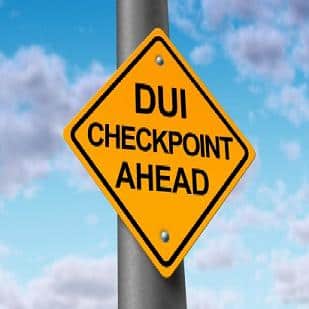 By Paul Armentano, NORML Deputy Director
By Paul Armentano, NORML Deputy Director
Oklahoma Gov. Mary Fallin has signed legislation, House Bill 1441, into law that criminalizes drivers from operating a motor vehicle if they have any detectable amount of THC and/or its inactive metabolites in their blood, saliva, or urine. Under such internal possession statutes, known as zero tolerance per se laws, a motorist who tests positive for the presence of such compounds is guilty per se (in fact) of a criminal traffic safety violation, regardless of whether or not there exist supporting evidence that the defendant was behaviorally impaired by such compounds.
Residual, low levels of THC may remain present in the blood of occasional consumers for several hours after past use and for several days in habitual consumers — long after any behavior-inducing effects of the substance have worn off. The inert carboxy-THC metabolite, a commonly screened for byproduct of THC, possesses a longer half-life in blood and also may be present in the urine of daily cannabis consumers for several weeks, or even months, after past use.
Oklahoma will become the 11th state to impose such a strict liability per se standard once the law takes effect on October 1, 2013. It is the third state this year to amend its traffic safety laws to include either per se thresholds or presumptive limits for cannabinoids.
Ten additional states – Arizona, Delaware, Georgia, Illinois, Indiana, Iowa, Michigan, Rhode Island, Utah, and Wisconsin – already impose zero tolerance per se thresholds for the presence of cannabinoids and/or their metabolites.
Five states impose non-zero-tolerant per se thresholds for cannabinoids in blood: Montana (5ng/ml — the new law, HB 168, signed in April, takes effect on October 1, 2013), Pennsylvania (1ng/ml), Ohio (2ng/ml), Nevada (2ng/ml) and Washington (5ng/ml).
Last month, Colorado lawmakers also approved legislation, effective as of July 1, 2013, stating that the presence of THC/blood levels above 5ng/ml “gives rise to permissible inference that the defendant was under the influence.”
However, according to the United States National Highway Transportation and Safety Administration (NHTSA): “It is difficult to establish a relationship between a person’s THC blood or plasma concentration and performance impairing effects. … It is inadvisable to try and predict effects based on blood THC concentrations alone.”
In addition, a 2013 academic review of per se drugged driving laws and their impact on road safety found “no evidence that per se drugged driving laws reduce traffic fatalities.”
NORML argues that it is inadvisable to infer behavioral impairment based on the presence of cannabinoid levels alone — a position that we outline here, here, and in public testimony here.
Source – NORML – make a donation








